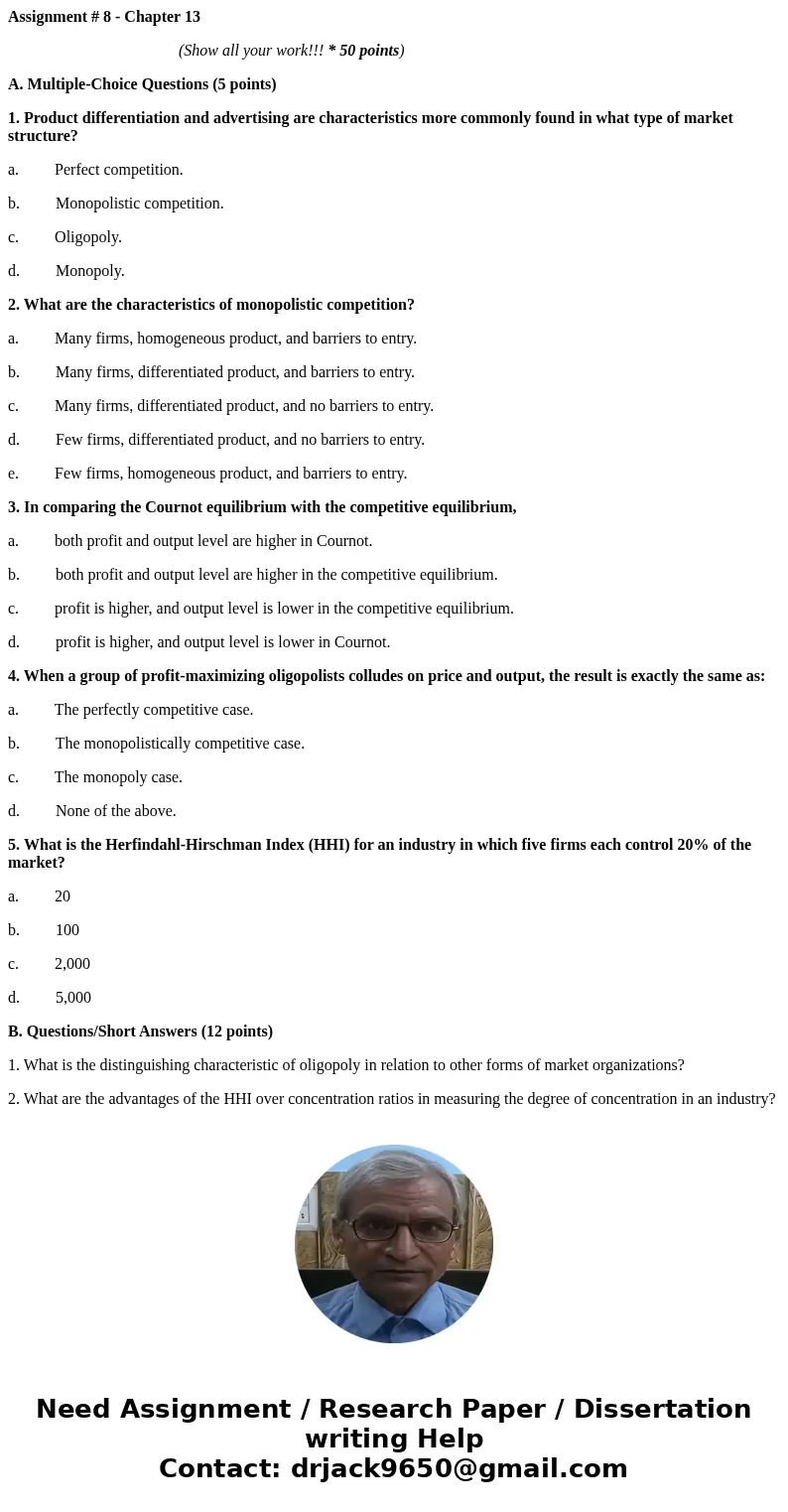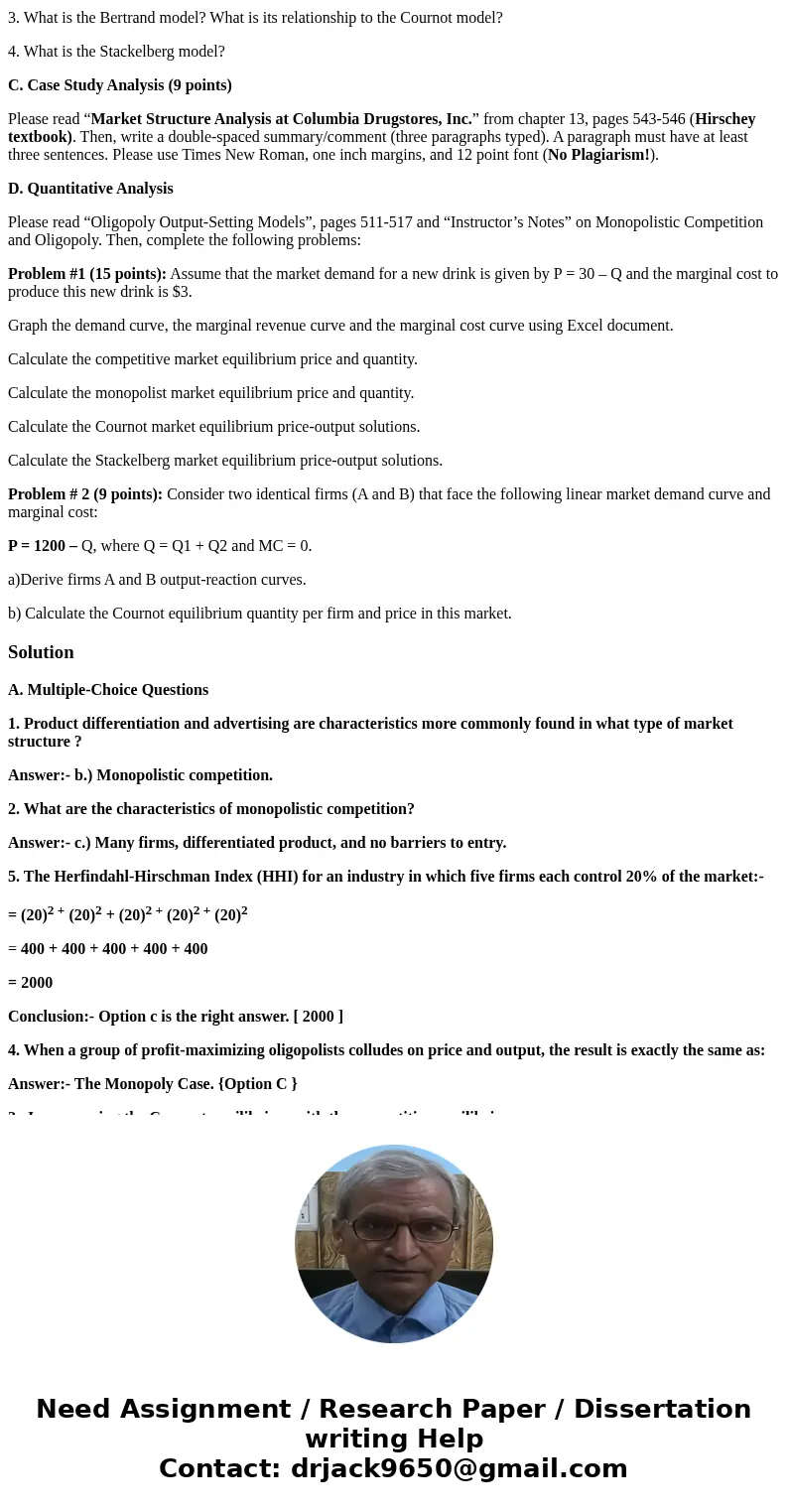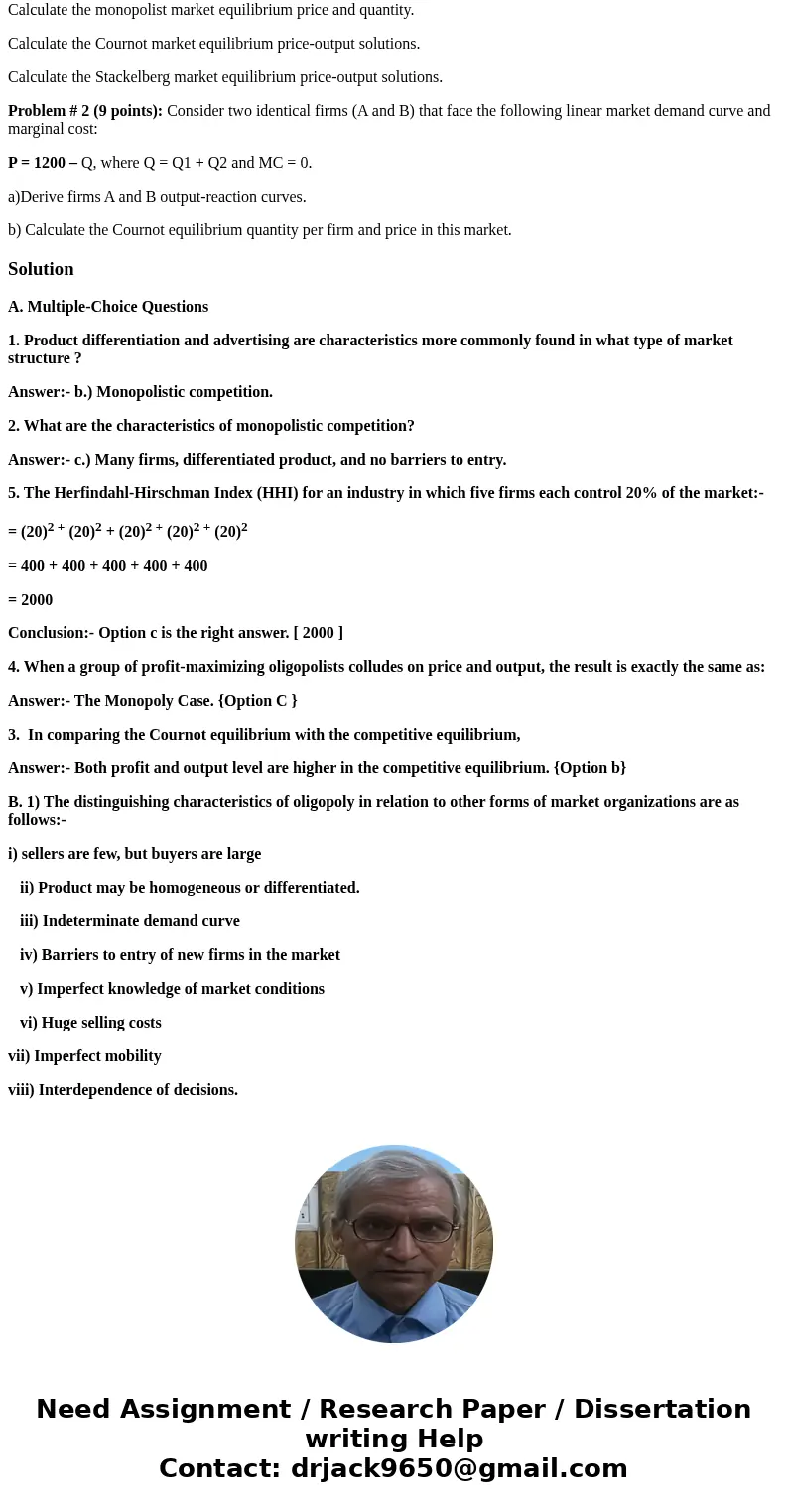Assignment 8 Chapter 13 Show all your work 50 points A Mu
Assignment # 8 - Chapter 13
(Show all your work!!! * 50 points)
A. Multiple-Choice Questions (5 points)
1. Product differentiation and advertising are characteristics more commonly found in what type of market structure?
a. Perfect competition.
b. Monopolistic competition.
c. Oligopoly.
d. Monopoly.
2. What are the characteristics of monopolistic competition?
a. Many firms, homogeneous product, and barriers to entry.
b. Many firms, differentiated product, and barriers to entry.
c. Many firms, differentiated product, and no barriers to entry.
d. Few firms, differentiated product, and no barriers to entry.
e. Few firms, homogeneous product, and barriers to entry.
3. In comparing the Cournot equilibrium with the competitive equilibrium,
a. both profit and output level are higher in Cournot.
b. both profit and output level are higher in the competitive equilibrium.
c. profit is higher, and output level is lower in the competitive equilibrium.
d. profit is higher, and output level is lower in Cournot.
4. When a group of profit-maximizing oligopolists colludes on price and output, the result is exactly the same as:
a. The perfectly competitive case.
b. The monopolistically competitive case.
c. The monopoly case.
d. None of the above.
5. What is the Herfindahl-Hirschman Index (HHI) for an industry in which five firms each control 20% of the market?
a. 20
b. 100
c. 2,000
d. 5,000
B. Questions/Short Answers (12 points)
1. What is the distinguishing characteristic of oligopoly in relation to other forms of market organizations?
2. What are the advantages of the HHI over concentration ratios in measuring the degree of concentration in an industry?
3. What is the Bertrand model? What is its relationship to the Cournot model?
4. What is the Stackelberg model?
C. Case Study Analysis (9 points)
Please read “Market Structure Analysis at Columbia Drugstores, Inc.” from chapter 13, pages 543-546 (Hirschey textbook). Then, write a double-spaced summary/comment (three paragraphs typed). A paragraph must have at least three sentences. Please use Times New Roman, one inch margins, and 12 point font (No Plagiarism!).
D. Quantitative Analysis
Please read “Oligopoly Output-Setting Models”, pages 511-517 and “Instructor’s Notes” on Monopolistic Competition and Oligopoly. Then, complete the following problems:
Problem #1 (15 points): Assume that the market demand for a new drink is given by P = 30 – Q and the marginal cost to produce this new drink is $3.
Graph the demand curve, the marginal revenue curve and the marginal cost curve using Excel document.
Calculate the competitive market equilibrium price and quantity.
Calculate the monopolist market equilibrium price and quantity.
Calculate the Cournot market equilibrium price-output solutions.
Calculate the Stackelberg market equilibrium price-output solutions.
Problem # 2 (9 points): Consider two identical firms (A and B) that face the following linear market demand curve and marginal cost:
P = 1200 – Q, where Q = Q1 + Q2 and MC = 0.
a)Derive firms A and B output-reaction curves.
b) Calculate the Cournot equilibrium quantity per firm and price in this market.
Solution
A. Multiple-Choice Questions
1. Product differentiation and advertising are characteristics more commonly found in what type of market structure ?
Answer:- b.) Monopolistic competition.
2. What are the characteristics of monopolistic competition?
Answer:- c.) Many firms, differentiated product, and no barriers to entry.
5. The Herfindahl-Hirschman Index (HHI) for an industry in which five firms each control 20% of the market:-
= (20)2 + (20)2 + (20)2 + (20)2 + (20)2
= 400 + 400 + 400 + 400 + 400
= 2000
Conclusion:- Option c is the right answer. [ 2000 ]
4. When a group of profit-maximizing oligopolists colludes on price and output, the result is exactly the same as:
Answer:- The Monopoly Case. {Option C }
3. In comparing the Cournot equilibrium with the competitive equilibrium,
Answer:- Both profit and output level are higher in the competitive equilibrium. {Option b}
B. 1) The distinguishing characteristics of oligopoly in relation to other forms of market organizations are as follows:-
i) sellers are few, but buyers are large
ii) Product may be homogeneous or differentiated.
iii) Indeterminate demand curve
iv) Barriers to entry of new firms in the market
v) Imperfect knowledge of market conditions
vi) Huge selling costs
vii) Imperfect mobility
viii) Interdependence of decisions.



 Homework Sourse
Homework Sourse